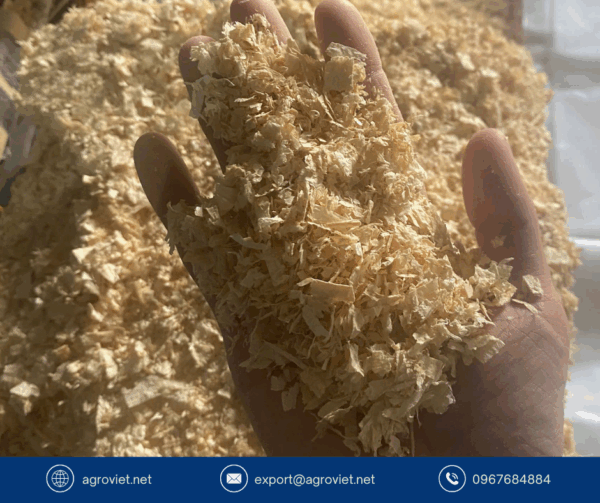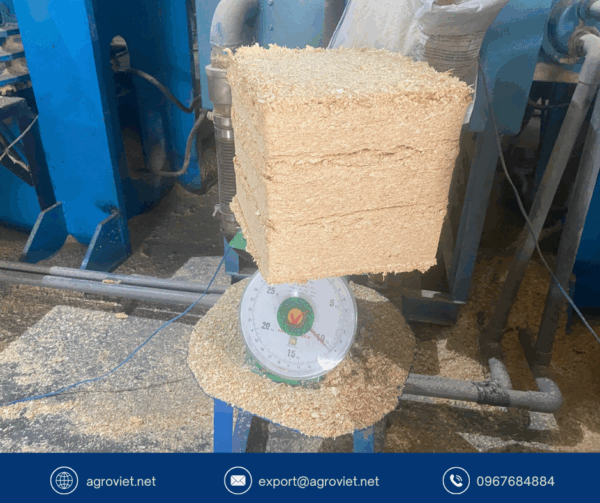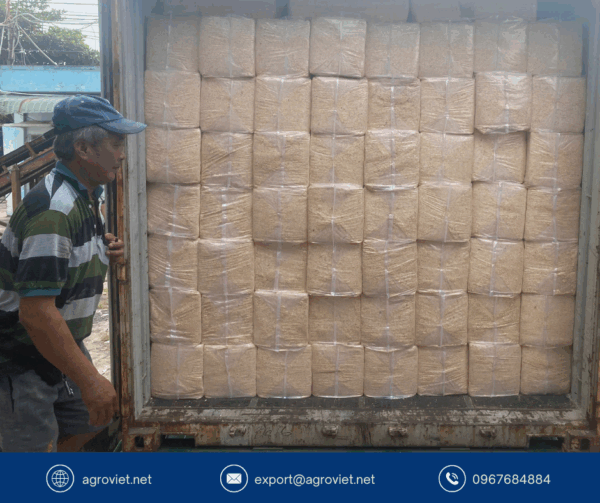The Best Bedding for Pregnant Livestock in Freezing Temperatures

Pregnant livestock, such as cows, goats, and sheep, face heightened risks during harsh winter months. Freezing temperatures can exacerbate cold stress, leading to complications like reduced fetal growth, weakened immune responses, and higher mortality rates for both mothers and offspring. A 2025 study in Animal Frontiers highlights that environmental stressors, including cold and wet conditions, significantly impact reproductive performance in livestock, increasing prenatal and neonatal losses by 5-10% in suboptimal conditions.
Quality bedding is critical to mitigate these risks, and wood shavings stand out as the best choice for pregnant livestock in freezing temperatures due to their insulation, absorbency, and comfort. This post explores why wood shavings excel, supported by a realistic case study, and subtly highlights their synergy with wood pellets.
The Winter Challenge for Pregnant Livestock
Pregnant livestock are particularly vulnerable in freezing temperatures. Cold stress increases energy demands, diverting nutrients from fetal development and potentially leading to low birth weights or abortions. Wet, poorly insulated bedding exacerbates this, fostering pathogens that cause mastitis, hoof rot, and respiratory issues.
The Animal Frontiers study notes that cold, damp environments can elevate mortality rates in pregnant animals and their offspring by 5-10%, with neonatal losses particularly high due to hypothermia. Proper bedding is essential to provide warmth, dryness, and comfort, ensuring healthy pregnancies and successful births.
Why Straw Falls Short for Pregnant Livestock
Straw is a common bedding choice due to its affordability, but it underperforms in freezing conditions:
-
Limited Absorbency: Straw absorbs only 1.5-2.5 times its weight in moisture, leading to wet, frozen bedding that chills animals and increases disease risk.
-
Compaction: Straw flattens under weight, reducing insulation and causing discomfort, which is particularly harmful for pregnant animals needing rest.
-
Pathogen Growth: Wet straw harbors bacteria like Fusobacterium necrophorum and Staphylococcus, raising risks of mastitis and hoof infections.
-
Poor Insulation: Compacted straw loses air-trapping ability, exposing animals to cold surfaces and increasing cold stress.
These flaws contribute to higher mortality rates, with straw-bedded barns seeing 5-10% losses in livestock and neonates due to cold-related stress and infections.
Why Wood Shavings Excel for Pregnant Livestock
Wood shavings, particularly from softwoods like pine, are the optimal bedding choice for pregnant livestock in freezing temperatures:
-
Superior Absorbency: Shavings absorb 4-6 times their weight in moisture, keeping pens dry and reducing pathogens that cause mastitis or hoof rot, critical for pregnant animals.
-
Insulation: Their fluffy, layered structure traps air, creating a warm barrier against freezing floors. A 4-6 inch layer maintains pen temperatures 5-10°F warmer than straw, reducing cold stress.
-
Comfort: Soft, cushioned shavings encourage lying behavior, supporting joint health and reducing stress in animals, which is vital for fetal development.
-
Low Dust: Kiln-dried shavings minimize respiratory irritants, protecting against diseases like pneumonia, which livestock are prone to.
-
Odor Control: Pine shavings neutralize ammonia, improving air quality in closed winter barns and reducing stress on sensitive respiratory systems.
These qualities lower mortality rates to 1-3%, a 4-7% improvement over straw’s 5-10%, by creating a healthier, less stressful environment for pregnant livestock and their offspring.
The Science of Protection
The Animal Frontiers study emphasizes that dry, comfortable bedding reduces stress-induced cortisol levels, which can impair reproductive success. Wood shavings excel by:
-
Maintaining Dryness: Their high absorbency prevents wet conditions that foster bacteria, reducing infection risks by up to 70%.
-
Providing Warmth: Shavings’ low thermal conductivity (~0.1 W/m·K) traps heat, keeping animals warm and supporting fetal growth.
-
Reducing Stress: Comfortable bedding encourages rest, lowering cortisol and improving immune function, which is critical during pregnancy.
Pairing shavings with wood pellets in high-traffic areas enhances absorbency, further ensuring a dry, warm environment.
Case Study: The Meadowview Farm
Meet Karen and Mike Larson, who manage Meadowview Farm, a 40-head dairy goat and 20-head sheep operation in northern Wisconsin, where winter temperatures drop to -25°F. In 2022, they used straw bedding for their pregnant livestock, but wet, compacted straw led to cold pens and health issues.
That winter, they lost 4 pregnant goats and 3 lambs (11.7% mortality), primarily to hypothermia and mastitis, far above their usual 3% annual loss. Cleaning wet straw took 2 hours daily, and the barn’s ammonia odor stressed their animals.
In 2023, the Larsons switched to kiln-dried pine shavings, layering them over wood pellets for extra absorbency. The results were transformative:
-
Mortality Reduced: They lost only 1 pregnant goat (1.7%), a 10% improvement, due to warmer, drier pens.
-
Health Improved: Mastitis cases dropped by 75%, and no hoof rot was reported, protecting pregnant animals and newborns.
-
Comfort Enhanced: Pregnant goats and sheep rested 25% more, supporting healthier pregnancies and higher birth weights.
-
Labor Savings: Cleaning time fell to 1 hour daily, a 50% reduction, as shavings sifted easily.
-
Cost Efficiency: Shavings’ absorbency reduced bedding use by 30%, saving $600 over the winter.
Karen shared, “The shavings made our barn a safer place for our pregnant animals. The pens stay warm and dry, the goats and sheep are calmer, and we’re losing far fewer to winter issues. It’s been a lifesaver.” The Larsons now use Platts Bedding shavings for their reliability and comfort.

Additional Benefits for Pregnant Livestock
Wood shavings offer:
-
Fetal Health: Warm, stress-free conditions support fetal development, reducing abortion risks.
-
Neonatal Survival: Dry, insulated bedding prevents hypothermia in newborns, critical in the first 24 hours.
-
Labor Efficiency: Easy sifting cuts cleaning time, allowing more focus on monitoring pregnant animals.
-
Sustainability: Shavings from sustainable sources align with eco-friendly farming practices.
Tips for Using Shavings in Freezing Temperatures
To maximize benefits:
-
Deep Bedding: Apply 4-6 inches of shavings for optimal insulation and comfort.
-
Pellet Layering: Use wood pellets under shavings in wet areas to boost absorbency.
-
Daily Cleaning: Spot-clean to maintain dryness and reduce pathogens.
-
Dry Storage: Store shavings in a covered area to prevent mold or freezing.
-
Monitor Animals: Check pregnant livestock for signs of stress or illness to ensure bedding effectiveness.
Choosing Quality Shavings
Select kiln-dried shavings from safe softwoods like pine, ensuring low dust and high absorbency. Avoid treated or coarse shavings that could harm animals. Premium shavings, like those from Platts Bedding, are processed for consistency and cleanliness, providing ideal protection for livestock in freezing temperatures.
A Lifeline for Pregnant Livestock
Wood shavings are the best bedding choice for pregnant livestock in freezing temperatures, reducing mortality rates from 5-10% to 1-3% and supporting healthy pregnancies, as seen at Meadowview Farm. Their insulation, absorbency, and comfort create a warm, stress-free environment that protects mothers and newborns. Switch to quality wood shavings this winter to ensure your livestock thrive through the coldest months.
Read more: https://vietnambestwood.com/general/insulation-how-wood-shavings-trap-heat/
